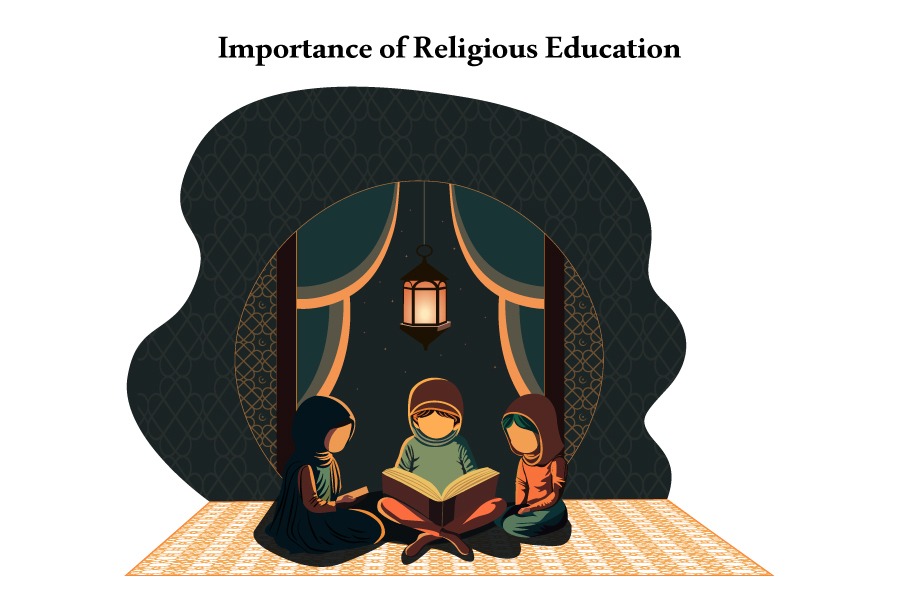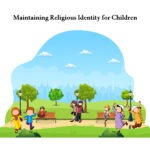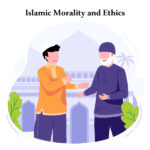Cultural and religious identity form an integral part of a person’s sense of self and belonging. Religious education serves as a cornerstone in the lives of many Muslims, providing them with guidance, knowledge, and a deep understanding of their faith. Islamic education encompasses various aspects, including Quranic studies, Hadith (Prophetic traditions), jurisprudence, and the study of Islamic history and ethics. It plays a crucial role in shaping the cultural and religious identity of individuals and communities.
The Role of Religious Education in Cultural and Religious Identity
Religious education plays a vital role in preserving cultural and religious identity, and this holds true for various faiths around the world. In the case of Islam, the significance of religious education is particularly profound. It serves as a moral compass, instilling essential values and beliefs within individuals. And help to shape their character, promoting virtues such as compassion, empathy, respect, and integrity. By imbibing these values, individuals become responsible members of their community and contribute positively to society.
Islamic education is not limited to acquiring knowledge about religious texts; it also emphasizes the application of that knowledge in daily life. It encourages individuals to develop a holistic understanding of their faith and its teachings. By studying the Quran and Hadith, Muslims gain insights into the principles and values that guide their beliefs and actions.
Benefits of Religious Education in Cultural Identity
Here are the some reasons and benefits of religious education in Cultural Identity,
-
Nurturing Spiritual Connection and Faith
Religious education allows individuals to develop a deep spiritual connection with their Creator. Through the study of Islamic teachings, individuals strengthen their faith and develop a personal relationship with Allah (God). This connection fosters a sense of purpose, inner peace, and contentment.
-
Promoting Moral and Ethical Values
Islamic education places great emphasis on moral and ethical values. It teaches individuals to lead a virtuous life, emphasizing honesty, kindness, compassion, justice, and integrity. By instilling these values, religious education contributes to the personal growth and character development of individuals.
-
Preserving Cultural Traditions
Religious education plays a pivotal role in preserving cultural traditions within the Islamic community. It allows individuals to understand the historical context and significance of various practices, rituals, and celebrations. By passing down cultural traditions, Islamic education ensures the continuity of cultural heritage across generations.
-
Strengthening Community Bonds
Islamic education fosters a sense of unity and cohesion within the Muslim community. It provides a platform for individuals to come together, learn from one another, and develop strong bonds based on shared values and beliefs. Through religious education, communities are strengthened, and social cohesion is promoted.
-
Developing Critical Thinking and Analytical Skills
Religious education encourages critical thinking and analytical skills among students. It teaches individuals to reflect upon and analyze religious texts, interpret them in contemporary contexts, and engage in intellectual discussions. This intellectual engagement nurtures a deeper understanding of Islam and helps individuals navigate the complexities of the modern world.
-
Fostering Social Responsibility
Islamic education promotes social responsibility and encourages individuals to actively contribute to the betterment of society. It highlights the importance of serving others, practicing charity, and addressing social issues. By instilling a sense of social responsibility, religious education empowers individuals to make positive contributions to their communities.
-
Empowering Women and Girls
Religious education plays a crucial role in empowering women and girls within the Islamic community. It provides them with access to knowledge and encourages their active participation in religious and community affairs. Islamic education promotes gender equity, challenges stereotypes, and empowers women to take leadership roles within their communities.
-
Addressing Misconceptions and Countering Extremism
Religious education acts as a powerful tool for addressing misconceptions about Islam and countering extremist ideologies. Promoting a deeper understanding of the faith equips individuals with knowledge and critical thinking skills to refute misinterpretations. Through education, individuals can counter Islamophobia and foster interfaith dialogue.
How to get Religious Education in non-Muslim Countries?
In non-Muslim countries, individuals interested in acquiring Islamic religious education have several avenues for obtaining Islamic education in such countries:
-
Islamic Institutes and Mosques:
Many non-Muslim countries have Islamic centers and mosques that offer Islamic educational programs for Muslims and non-Muslims alike. These institutions often offer comprehensive programs covering various Islamic disciplines, including Qur’anic studies, Hadith, Fiqh, and Islamic history. Research and find out if there are any reputable Islamic seminaries or institutes in your region.
-
Online Courses and Resources:
Various websites and online platforms provide courses, lectures, and study materials on different aspects of Islam. These resources can be accessed from anywhere, allowing individuals in non-Muslim countries to learn about Islam at their own pace.
-
Community Organizations and Study Groups:
Joining local Muslim community organizations or study groups can be a valuable way to learn about Islam. These groups often organize study circles, discussion forums, and educational events where individuals can deepen their understanding of Islamic teachings.
-
University Courses:
Many universities in non-Muslim countries offer courses in religious studies, which may include modules on Islam. These courses provide academic perspectives on Islamic theology, history, and culture. Check the course catalog of universities near you to see if they offer Islamic studies or religious studies programs.
-
Self-Study and Reading:
Engaging in self-study is another effective approach to gaining knowledge about Islam. Acquire reputable books, translations of the Qur’an, and literature on Islamic topics to read and explore on your own.
How AlQuranClasses help you to gain Islamic education?
AlQuranClasses, assists Muslims in gaining Islamic knowledge in a convenient and accessible manner. We offer Quranic education and guidance to students of all ages and backgrounds. AlQuranClasses provides qualified and experienced Quran tutors who teach students the recitation, Tajweed, understanding, and memorization of the Quran.
With the help of technology and interactive teaching methods, AlQuranClasses enables Muslims to enhance their understanding of the Quran and Islamic teachings from the comfort of their homes, fostering a deeper connection with their faith.
Register Free Trial Now
Conclusion
When pursuing Islamic education in non-Muslim countries, it’s essential to approach the subject with an open mind and respect for cultural differences. Engaging in respectful dialogue with knowledgeable individuals, seeking guidance from reputable scholars, and actively participating in educational events within the local Muslim community can greatly enhance your understanding of Islamic teachings.















